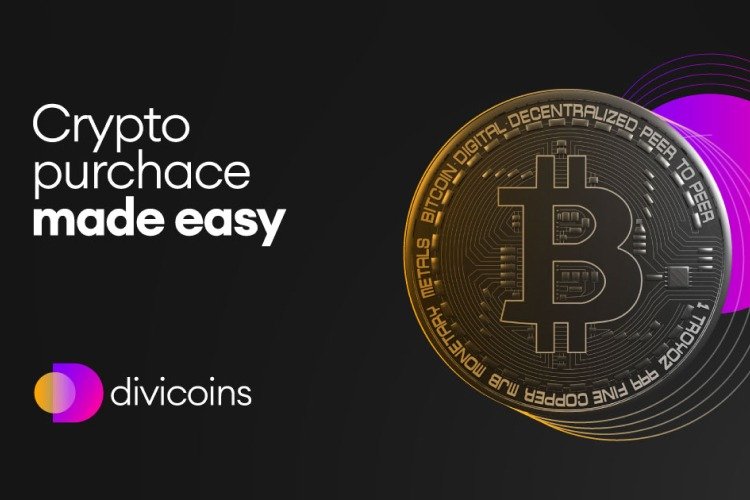Crypto and Sustainability: Can Blockchain Support Europe's Green Agenda?

As the world increasingly turns its attention to combating climate change, Europe has positioned itself at the forefront of sustainability initiatives. Within this context, the intersection of cryptocurrency and sustainability has become a hot topic of discussion. There is growing interest in how blockchain technology, the backbone of cryptocurrencies, can contribute to Europe’s green agenda. Divicoins reviews how blockchain can support sustainability efforts, such as carbon credits and renewable energy trading while addressing the environmental concerns of crypto mining.
The Role of Blockchain in Supporting Green Initiatives
Blockchain technology offers unique capabilities that can be harnessed to advance European
sustainability goals. One of the most promising applications is in managing and trading carbon credits. Carbon credits are a key tool in the fight against climate change, allowing companies to offset their carbon emissions by purchasing credits that fund environmental projects. Blockchain’s immutable ledger can enhance the transparency and efficiency of carbon credit trading, ensuring that credits are accurately tracked and reducing the potential for fraud or double counting.
Another area where blockchain is making a significant impact is in the renewable energy sector. Blockchain platforms can facilitate peer-to-peer energy trading, where individuals and businesses can buy and sell renewable energy directly from each other. This decentralisation of energy markets can promote the use of clean energy by making it more accessible and affordable. For example, blockchain-based energy trading systems can allow households with solar panels to sell excess energy to their neighbours, contributing to a more sustainable and resilient energy grid.
Addressing Environmental Concerns of Crypto Mining
Despite its potential to support green initiatives, cryptocurrency mining has come under scrutiny for its environmental impact. The mining process, particularly for proof-of-work (PoW) cryptocurrencies like Bitcoin, requires significant computational power and energy consumption. This has led to concerns about crypto mining’s carbon footprint, especially in regions where fossil fuels generate electricity.
There is a growing movement towards more sustainable blockchain practices to address these concerns. Some cryptocurrencies are transitioning to less energy-intensive consensus mechanisms, such as proof-of-stake, which significantly reduces the energy required for mining. Additionally, there are efforts to power mining operations with renewable energy sources. Several projects in Europe have emerged that focus on using clean energy for cryptocurrency mining, aligning the crypto industry with the continent’s sustainability goals.
European Projects Leveraging Blockchain for Sustainability
Europe has several innovative projects and startups leveraging blockchain technology to support sustainability. One notable example is WePower, a blockchain-based platform that enables renewable energy producers to raise capital by selling future energy production directly to consumers through digital tokens. This provides a new financing mechanism for green energy projects and promotes the use of renewable energy by making it more accessible to a broader market.
Another project, the Energy Web Foundation (EWF), is building an open-source blockchain platform designed for the energy sector. EWF’s blockchain technology facilitates the integration of renewable energy sources into the grid, enabling real-time tracking of energy production and consumption. This helps to optimise the use of renewable energy and reduce reliance on fossil fuels.
Policy Implications and the Future of Blockchain in Europe’s Green Agenda
The growing use of blockchain in sustainability efforts has not gone unnoticed by policymakers. European regulators are increasingly recognizing the potential of blockchain to contribute to environmental goals, leading to discussions on how to integrate these technologies into existing regulatory frameworks. This could include support for blockchain-based carbon credit systems and incentives for using renewable energy in cryptocurrency mining.
However, the regulatory environment is still evolving, and challenges need to be addressed. For instance, ensuring that blockchain solutions are interoperable across borders and sectors will be crucial for widespread adoption. Additionally, regulators will need to balance promoting innovation and ensuring that blockchain technologies are used in a way that aligns with Europe’s broader environmental objectives.
Conclusion
As Europe continues to pursue its ambitious green agenda, blockchain technology offers promising solutions to some of the region’s most pressing sustainability challenges. From enhancing the transparency of carbon credit markets to enabling peer-to-peer renewable energy trading, blockchain is poised to play a key role in supporting the transition to a more sustainable economy.
While challenges remain, particularly around the environmental impact of crypto mining, ongoing innovations, and regulatory developments suggest that blockchain could become a vital tool in Europe’s fight against climate change. Instead of mining cryptocurrency, you can use Divicoins to buy a necessary amount of crypto, contributing to overall sustainability efforts. The integration of blockchain into green initiatives supports environmental goals and showcases the potential of cryptocurrencies to drive positive change.